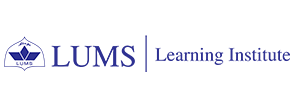
Pedagogical Partnership Program (PPP) Projects for Spring 2025
Applications for PPP 2025 are now closed. Stay tuned for the next application cycle.
Here is a quick overview of this year’s shortlisted Pedagogical Partnership Projects.










Project Title: Triumph of Linear Algebra: Transforming Undergraduate Mathematics Instruction through Primary Historical Sources and Practical Applications
Type of Project: Course Delivery
Faculty Member: Imran Anwar
Project Description:
The course proposed for this partnership is Linear Algebra and Differential Equations (MATH120). The focus will be on improving general classroom practices by implementing innovative teaching strategies to increase participation and engagement. The curriculum and pedagogy will also be refined to improve the balance between theoretical rigor and practical applications to make the course more relatable.
Student Partner role:
The role of a student as a pedagogical partner in the "Triumph of Linear Algebra" project involves active collaboration with faculty to enhance the teaching and learning process by integrating primary historical sources and practical applications into the curriculum. The responsibilities include:
Historical Research and Integration
- Assist in identifying and analyzing primary historical sources related to key concepts in linear algebra.
- Collaborate in designing instructional materials that connect historical developments to modern applications of linear algebra.
Curriculum Development Support
- Work with the teaching team to incorporate historical narratives and applications into lectures, assignments, and activities.
- Provide feedback on the clarity and accessibility of instructional content from a student perspective.
Student Perspective Advocacy
- Act as a bridge between students and faculty by providing insights into student learning preferences and challenges.
- Gather and present feedback from peers to refine course content and teaching strategies.
Innovative Practices Contribution
- Propose creative ways to link theoretical concepts to real-world applications and encourage active learning.
- Help in designing assessments that emphasize understanding and practical problem-solving.
By serving as a pedagogical partner, the student contributes to transforming traditional linear algebra instruction into a more engaging, historically rich, and application-oriented learning experience.
Additional requirements:
The ideal candidate for this role is either an undergraduate student who has successfully completed an honors course in linear algebra or a motivated graduate student with a strong desire to deepen their understanding of the subject. These individuals should possess:
- A solid foundation in linear algebra, demonstrated through coursework, research, or exceptional academic performance.
- A genuine interest in exploring the subject beyond standard curricula, with an inclination toward advanced concepts and their historical context.
- A passion for engaging with primary historical sources and connecting them to modern applications.
- A proactive attitude toward enhancing the learning experience for themselves and others.
- The ability to work effectively in a team setting with faculty and peers.
- A commitment to contributing actively to curriculum design, teaching practices, and peer engagement activities.
- A creative approach to integrating historical narratives and real-world applications into academic content.
- An analytical mindset to evaluate the effectiveness of instructional methods and suggest improvements.
Project Title: Calculus with AI
Type of Project: Course Design
Faculty Member: Waqas Ali Azhar
Project Description:
Objectives:
Designing AI-Enhanced Calculus Curriculum: Working with students to identify which topics in Calculus 1 are most challenging, and using AI to develop interactive lessons and tutorials that address these difficulties. This may include step-by-step solutions for derivative rules, integral techniques, and applications of calculus.
Personalized Learning Pathways: Implementing AI to create customized learning paths for students based on their progress with calculus concepts, helping them master difficult areas like the chain rule or integration by parts through tailored exercises.
Real-Time Problem Solving and Feedback: Using AI-powered systems to give immediate feedback on calculus problems, helping students understand where they went wrong in problems involving derivatives, limits, or integrals, and guiding them to the correct solution.
Interactive Calculus Tools: Developing AI-assisted visualization tools that allow students to explore graphs of functions, slopes, tangents, and areas under curves, helping them develop an intuitive grasp of abstract calculus concepts.
Student Partner Role:
Identifying Challenges: Students will participate in surveys and focus groups to share their experiences and difficulties with calculus concepts such as derivatives, integrals, and limits. They will identify specific areas where they feel additional support or innovative teaching methods are needed.
Co-Designing AI Tools: Partner students will work with instructors and AI developers to design interactive tools, quizzes, and learning modules. They will contribute insights into how AI can best support their learning, such as providing hints for solving derivative problems or offering step-by-step guides for integration.
Testing and Feedback: Partner students will test AI-driven solutions, such as personalized quizzes or virtual tutors, providing feedback on their usability, effectiveness, and clarity. Their real-time experiences will help refine the tools to ensure they meet the needs of future learners.
Collaborating on Interactive Content: Students will collaborate to create problem sets, peer-led discussions, and video explanations, supported by AI, to foster a deeper understanding of key calculus concepts. They will work with the team to identify where AI can make abstract calculus concepts more intuitive, such as through dynamic visualizations of limits or graphs of derivatives.
Additional Requirements:
Student with a strong calculus and computer science background are preferred
Project Title: PHY417: An Introduction to Quantum Information Science and Technologies
Type of Project: Course Delivery
Faculty Member: Aeysha Khalique
Project Description: Project Title: Course Delivery Partnership for PHY-417 An Introduction to Quantum Information Science and Quantum Technologies
‘PHY-417 An Introduction to Quantum Information Science and Technologies’ is an elective course, cross-listed in PHY, EE, and CS at SSE. I am looking for a student who has taken this course, and preferably some other elective course on quantum computing and information, to help assess the course's level and learning outcomes. The project has multiple aims, including gathering feedback on the teaching style and measuring students' satisfaction. Additionally, it seeks to refine and improve the course content and structure during its delivery to keep pace with this fast-evolving field.
Student Partner Role:
The student partner's insights will be crucial in evaluating the quality of assessments, ensuring they align with current academic expectations. The student partner is also expected to co-create some of the assessments. Their familiarity with quantum technologies will provide valuable perspectives to maintain the course's relevance and rigor. The student partner will also help in integrating AI into the course.
The student partner should be able to:
Evaluate the lecture delivery up to the students' satisfaction and the expected learning outcome of the course.
Give feedback on the standard of assessments and co-create some of the assessments.
Refine the course outline during the delivery
Collaborate with instructor to equip students with skills to use AI correctly
Additional Requirements:
Should have taken the PHY-417 Introduction to Quantum Information Science and Technology, previously. It is preferred if the student partner has also taken some other quantum computing or quantum technology course/s. The student partner MUST be able to attend the class Tues & Thurs, 9:30 am – 10:45 am.
Project Title: How Well Does the Course Prepare Students for Work in AI and Education?
Type of Project: Course Delivery
Faculty Member: Jazib Zahir
Project Description:
This course is being offered for the first time to encourage students to critically evaluate how their approach to work and education must adapt with the growing availability of AI tools. It aims to equip students to navigate the rapidly evolving industrial landscape shaped by AI. This course explores the transformative impact of artificial intelligence (AI) and digital technologies on education and the workforce. Starting from a broad perspective on policy and social change, the course transitions into the role of AI in education, with a strong emphasis on ethical considerations, practical applications, and pedagogical redesign. Students will engage in hands-on practice with AI tools, critically analyze their implications, and develop strategies for fostering equity, social justice, and inclusion in education. Through case studies, students will also be Evaluating ethical dilemmas involving AI in education or the workplace.
Student Partner Role:
Part of a Groundbreaking AI Education Project!
Are you passionate about AI and looking for a unique opportunity to make a real impact on education? Join us as a Student Partner for an innovative PPP Course Delivery Project at LLI!
Here’s your chance to:
🎯 Shape the Future of Learning
Help us measure and enhance how students build confidence in using AI tools for productivity and research at work and in the educations sector.
🎯 Collaborate on Meaningful Research
Facilitate interviews and focus groups to gather valuable insights from students. Assist in developing and implementing pre- and post-assessments to evaluate course outcomes. The insights will culminate into an impact report.
🎯 Redefine Teaching Excellence and refine course effectiveness
Observe classroom dynamics to suggest strategies that prepare students for meaningful AI debates and applications in their careers and education. As well as helping in co-creating engaging learning experiences for the course module.
🎯 Transform Assessment Tools
Provide feedback on course assessments and contribute to designing tools that truly reflect learning outcomes.
What You’ll Gain:
✅ Hands-on experience with educational research and course design in action. Along with insights on how AI is shaping the future of work and education!
✅ Collaboration opportunities with the Learning Institute’s expert team and expert faculty.
✅ A chance to contribute to reshaping AI education for your peers.
Ready to Lead the Change?
Join us as a student partner and be at the forefront of AI-driven educational innovation!
Additional Requirement: Student Partner must be able to attend Tue/Th 3:30-4:45

